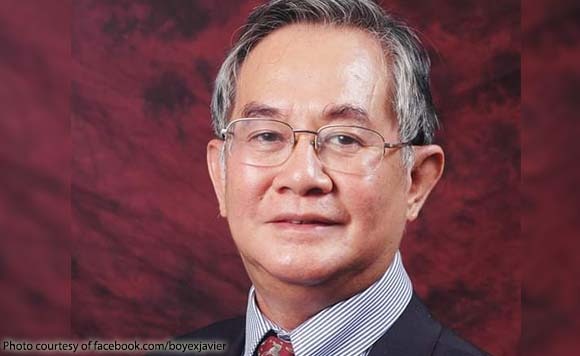Exequiel B. Javier: The Architect of Antique's Post-EDSA Political Dynasty
THE EDITORIAL CHEESE
Patrick Petinglay Villavert
10/20/20253 min read
Exequiel Bellaflor Javier (born October 16, 1946) is a Filipino lawyer and politician who dominated the political landscape of Antique province for over three decades following the EDSA People Power Revolution. His career is distinguished by his legislative expertise, his political resilience, and his instrumental role in establishing the Javier political dynasty that succeeded the martyrdom of his elder brother.
Early Life and Entry into Politics
A graduate of the Ateneo de Manila University, Exequiel Javier earned his Bachelor of Arts in Political Science (1967) and his Bachelor of Laws (1971), later obtaining a Master of Laws in Corporate Law from New York University (1975). Before fully immersing himself in Antique politics, he practiced law and taught taxation and political law at the Ateneo de Manila University.
His political entry was catalyzed by the tragic assassination of his brother, former Governor Evelio B. Javier, in 1986—a key event that hastened the downfall of the Marcos dictatorship. After the restoration of democracy, the mantle of the Javier name, now synonymous with sacrifice and the fight against tyranny, propelled Exequiel into public office.
A Long Career of Alternating Power
Exequiel Javier's political longevity in Antique was defined by a strategic control over the province's two highest elective positions: the Lone District Representative and the Provincial Governor.
Congressional Dominance: Javier was first elected as the Representative of Antique's Lone District in 1987. He served three consecutive terms until 1998, returning for another three terms from 2001 to 2010. During his tenure in the House of Representatives, he gained national recognition as a legislative expert, particularly serving as the Chairman of the powerful Committee on Ways and Means. He was also a principal proponent of the landmark Local Government Code of 1991.
Gubernatorial Terms: To circumvent the three-term limit for the congressional seat, Javier twice pivoted to the gubernatorial post. He served as Governor from 1998 to 2001 and again from 2010 to 2015, effectively ensuring the Javier family's continuous hold on the province's executive or legislative leadership for much of the post-EDSA era.
The Creation of a Political Dynasty
The most significant aspect of Exequiel Javier's career, and one that contrasts sharply with his brother Evelio’s anti-dynasty principles, is his success in institutionalizing the Javier family as the dominant political force in Antique.
The establishment of the dynasty was solidified during the 2010 elections when, after completing his term as Congressman, Exequiel ran and won for Governor while simultaneously fielding his son, Paolo Everardo S. Javier, for the congressional seat. This move effectively secured the two most powerful positions in the province for the family, demonstrating a classic example of political dynastic succession. Paolo Everardo served as Congressman for three consecutive terms (2010–2019) and later made a successful bid for the gubernatorial post in recent years, ensuring the family's continued presence at the helm of provincial leadership.
This political inheritance stands as a profound irony: the family name that became a battle cry against authoritarian and dynastic rule was successfully used by Exequiel Javier to build a new, enduring political clan in the province its martyr had tried to liberate from entrenched family politics. The Javier dynasty became a living testament to the challenges of fully eradicating traditional, family-based politics in the Philippines.
Challenges and Legacy
Javier's long career was not without controversy. In 2015, he was formally removed from the governorship by the Department of the Interior and Local Government (DILG) and the Commission on Elections (COMELEC) for violating the Omnibus Election Code by ordering the suspension of a municipal mayor during the election period. He and his son have also faced complaints regarding alleged corruption related to the use of pork barrel funds, which they dismissed as politically motivated.
Despite these challenges, Exequiel Javier remains a consequential figure in Antique history, having served a combined nine terms in the province's two top elective posts. His political maneuvering and electoral success ensured that the Javier name, though born of revolutionary martyrdom, became synonymous with the long-term exercise of power in Antique.


